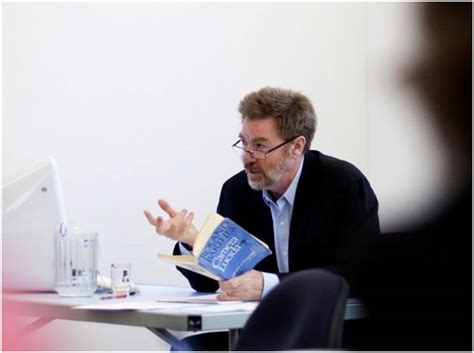A Quote by Roland Barthes
Ultimately — or at the limit — in order to see a photograph well, it is best to look away or close your eyes. 'The necessary condition for an image is sight,'Janouch told Kafka; and Kafka smiled and replied: 'We photograph things in order to drive them out of our minds. My stories are a way of shutting my eyes.
Related Quotes
When I wrote 'Your Republic Is Calling You,' it was Franz Kafka's writing that I had most in mind, and James Joyce's 'Ulysses.' Entirely out of the blue, Kafka's characters receive an order to go somewhere, and when they try to comply, they never quite manage it. Ki-yong in 'Your Republic Is Calling You' is precisely that sort of character.
Kafka is one of my very favorite writers. Kafka's fictional world is already so complete that trying to follow in his steps is not just pointless, but quite risky, too. What I see myself doing, rather, is writing novels where, in my own way, I dismantle the fictional world of Kafka that itself dismantled the existing novelistic system.
The minute you start saying something, 'Ah, how beautiful! We must photograph it!' you are already close to view of the person who thinks that everything that is not photographed is lost, as if it had never existed, and that therefore, in order really to live, you must photograph as much as you can, and to photograph as much as you can you must either live in the most photographable way possible, or else consider photographable every moment of your life. The first course leads to stupidity; the second to madness.
A photograph never grows old. You and I change, people change all through the months and years but a photograph always remains the same. How nice to look at a photograph of mother or father taken many years ago. You see them as you remember them. But as people live on, they change completely. That is why I think a photograph can be kind.
Many people meditate in order that a third eye may open. For that they feel they should close their two physical eyes. They thereby become blind to the world. But the fact is that the third eye will never open. We can never close our eyes to the world in the name of spirituality. Self-realization is the ability to see ourselves in all beings. This is the third eye through which you see, even while your two eyes are open. We should be able to love and serve others, seeing ourselves in them. This is the fulfillment of spiritual practice.
If you look at a photograph, and you think, 'My isn't that a beautiful photograph,' and you go on to the next one, or 'Isn't that nice light?' so what? I mean what does it do to you or what's the real value in the long run? What do you walk away from it with? I mean, I'd much rather show you a photograph that makes demands on you, that you might become involved in on your own terms or be perplexed by.


































